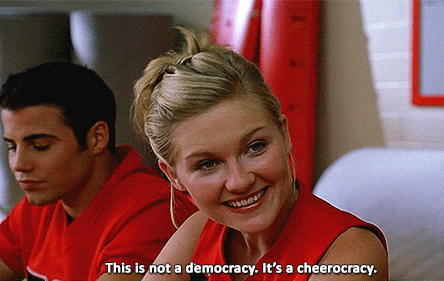(Episode 512): INCORRECT! Religion and Sports…
Transcript! Because accessibility is mandatory…
PDF transcript. Also available via our Buzzsprout page.
Shownotes!
Because citations are political…
Today’s episode is an INCORRECT, where we kindly but firmly insist that religion does more and different work than you might think that it does. On today, we want to challenge some basic assumptions about SPORTS, specifically the idea that SPORTS are 100% secular and have absolutely nothing to teach or tell us about religion. We focused on some basic religious theory to talk about sports as social, ritualistic, and cultural.
“ Pain heals, chicks dig scars, glory lasts forever”
The 101: Where we did the professor work…
So, what does religion have to do with sports? Aren’t sports “secular”?
So, what do people normally get wrong when talking about sports and religion?
Sports – including the play of sports as well as the spectatorship – include so many elements of religion and religious practice.
In all levels of sports there are rituals, sacred space, aggression, anger, and love. The community that is felt through and preserved by sports teams has so much in common with religion. And this is why sports, like religion, have major consequences in history and in everyday life.Sports in the USA are tied so, so deeply to religion.
There is a huge history of the use of Christianity as a way to discipline bodies through spaces like the YMCA and surrounding ideas of muscular Christianity and Christian bodies being used as weapons in the name of Christ. And sports teams have a lot to say about how and when athletes should pray and, of course, kneel to honor something like the United States.
What do religious theorists have to say about all of this?
Emile Durkheim on Collective Effervescence….
Durkheim explains the ties between religion and sociology. Collective effervescence is a mood that is created when experiencing something at the same time as a bunch of other people. This experience is helpful in making sense of the world. It happens when you get swept up in a collective, emotional experience.
Michele Foucault on policing and bodily discipline…
Foucault reminds us that there are social rules and expectations that are created within things like sports. Things like, what colors to wear on game day, what songs to sing, and how you should act within different environments surrounding sports. He is interested in the rights and wrongs of sports and how violating those is punished.
Katherine Bell on ritual and the body
Katherine Bell is interested in the way that practice, routine, and ritual impact bodies. So, it is possible to participate in rituals having to do with sports and to find yourself changed. This may be in small ways, or it can cause a fundamental internal shift for an individual.
On this episode, Professor Morgenstein Fuerst leads us in a conversation about why sports often feel like religions and why we should care. The killjoys guide us in a conversation about how sports are inextricably linked to specifically white Christianities and how people feel passionate about sports in a really unique way. Even if we don’t play for a team or really care about a sport, we may REALLY care about a certain because of where we’re from, where we live, or because of our families. So let’s get into it….
In Conclusion…
Sports, like everything else, are culturally influenced. Sports matter to people, influence history and social structures. So, of course we should consider religion when looking at sports! Religion appears in obvious ways like gyms in Churches, religious freedom at games, or spaces like the YMCA. But religion also appears when we talk about rituals, collective effervescence, and social expectations. Knowing or not knowing about sports or their rituals is not always just about “fitting in”, it can also be about safety. So, next time you sit down to watch your favorite team, look for signs of overlap between sports and religion. Thanks nerds!
Don’t forget your homework nerds!
IRMF and Goodwin say that you should check out…
Alpert, Rebecca T. 2015. Religion and sports: an introduction and case studies.
Soccer Empire: the World Cup and The Future of France





